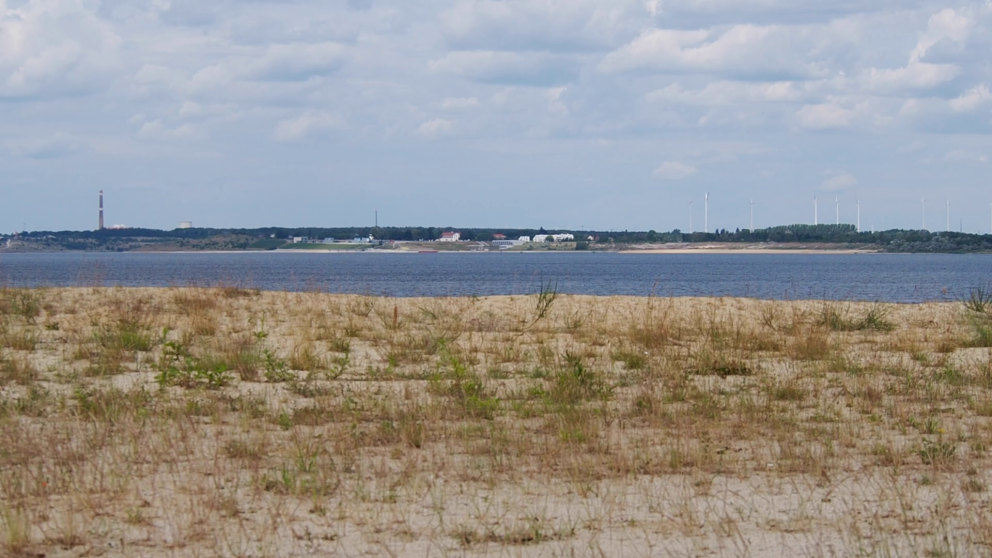What do you know about Lusatia?
23.09.2020

How do you get a feel for a place? I have to be there in person. I feel the ground, taste the air, dip my fingertips in the water; I let the sounds weave its stories for me.
Since April, I've been working on an artistic project about Lusatia, a region that straddles the German-Polish border. The region has long captivated my imagination, since learning about its cross-border identity and the history of the Sorbs, a Slavic minority whose presence in Lusatia pre-dates today’s nation states.
Capturing a changing identity
My work focusses on human relations to the environment in the context of the climate crisis. Recently, I have become interested in how identity plays a role in the evolution of this relationship, and human feelings towards challenges to live sustainably. In creating work about this topic, I incorporate not only human perspectives, but what I can glean from non-human perspectives too: the land, the water, the flora and fauna in an ecosystem.
When it comes to the entwining of identity with sustainability, Lusatia is a particularly interesting place. Alongside being the home to Sorbs, the region is well known for its brown-coal mining industry. Indeed, the dominance of the large opencast mines on the landscape is paralleled in their dominance of the narrative of Lusatia's identity. However, this industry is set to end in just under 20 years, and while old mines are already filled with water across the region, questions remain about what will fill the holes left by the mines in the future economy and industry, and in people's hearts.
The title of the work is “This Land is Not Mine” - a (hard-to-translate) play on words in English that expresses multiple facets of the work: the fact that mining has been a large part of the regional identity at the expense of other defining characteristics of the region - “this land is not only defined by brown-coal mines”; the fact that human ownership of land is a collective agreement - “this land cannot actually be owned by me” - that simultaneously allows us to believe we should and can assert dominance over nature, a mind-set that can at times be at odds with sustainability's theoretical underpinnings; and finally my own relationship to the region as an immigrant who grew up near the Welsh border and with Welsh heritage - “this land is not where I come from, but some things feel familiar”.

“This Land is Not Mine”: Workshop at Brandenburg Landesmuseum
It is in this moment of transition that This Land is Not Mine seeks to capture a changing identity. I started by getting to know parts of Lusatia physically – I have visited, listened, watched. I have used special equipment that I develop to make audible the chemical properties of water. I have much more to do to gather the voice of the land in Lusatia. But I also want to get to know people in Lusatia, and their perspective on the land.
At the end of this week, I will be running a workshop at the Brandenburg Landesmuseum for Modern Art, where I will invite participants to join me in using special equipment to listen to the water in the Museum's grounds and to discuss the act of listening as a way to connect with the environment.
Contributing sounds from Lusatia
I have also just launched a website, inviting residents of Lusatia to contribute sounds that are important to them - or you if you live there. This can be the sound of wind turbines, the splash of pebbles thrown into the new lake, the creak of your shed door, the judder of tyres over cobblestones or asphalt, or the call of the woodpecker living in your garden: Whatever sounds really connect you to the place. The website also includes tips for listening exercises, and on how to record and upload recordings.
The recordings that people contribute to the website and through the workshop will be used in a sound composition accompanied by a video installation that I will create as my researches come to an end. There is of course a singular responsibility in using sounds contributed by others, particularly as I come as an outsider not only to the region, but to the country. The work can make no claims to propose answers, or to convey an objective depiction of Lusatia's identity. Rather, it will be a synthesis of my experiences of and feeling for the region, informed by and told with the sounds collected alone and in collaboration with others.
Would you like to participate in the Wasserklang workshop at the BLMK? Find out more details here: https://www.blmk.de/programm/workshop-open-lab-wasserklang-open-lab-syn…
Learn about listening and contribute sounds of Lusatia at the LausitzKlang site: https://lausitzklang.katausten.com/
Learn more about the work of the IASS in Lusatia: https://www.iass-potsdam.de/en/research-group/lusatia
